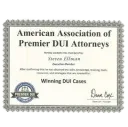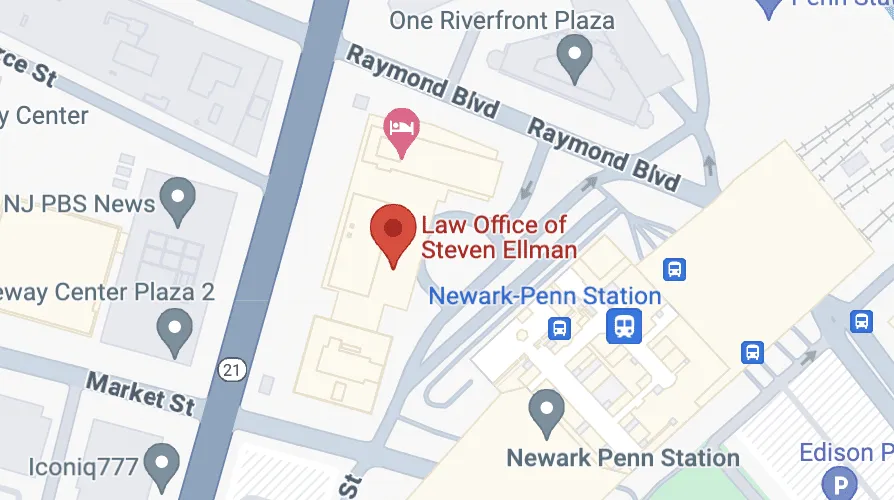What to Do After a Second DUI: Legal Advice and Steps
Are you facing a second DUI? Discover legal tips and your rights. Get informed with our expert advice and ensure you’re prepared.
According to the State of New Jersey, almost 27,000 people are arrested every year for DUI.
And, did you know a second DUI can result in penalties that are often twice as severe as a first offense?
Today, we’re taking a closer look into what happens after a second DUI, the legal advice you’ll need, and the steps to protect your future.
The Immediate Aftermath: What Happens After a Second DUI Arrest
After a second DUI arrest, the legal process begins quickly, and the consequences are often more severe than the first offense.
Once you’re arrested for a second DUI, you’ll be taken into custody for booking. The process includes fingerprinting, photographing, and recording your personal information.
Depending on the severity of your case, you may be held in jail until your arraignment or released on bail. If your blood alcohol content (BAC) was significantly higher than the legal limit, or if there were aggravating circumstances like an accident, it may lead to a longer detention.
Arraignment in Court
The arraignment usually happens within a few days of the arrest. It’s your first court appearance, where you’ll be formally charged and asked to enter a plea.
It’s important to have legal representation by this point. Pleading guilty or no contest could result in immediate sentencing, so a lawyer can help guide you through your options and ensure your rights are upheld.
Possible Pre-Trial Restrictions
After the arraignment, you may face pre-trial restrictions while waiting for your next court date. They can include having your driver’s license suspended, being required to install an ignition interlock device on your vehicle, or even adhering to a curfew.
The court may impose these restrictions depending on the specifics of your case, and violating them could worsen your situation. This stage is where the consequences of a second DUI start to take shape, and having a strong legal defense is crucial moving forward.
Second DUI Consequences
Facing a second DUI conviction brings much harsher penalties than a first offense. The legal consequences can significantly impact your life, from immediate punishments to long-term restrictions. There are three key consequences to be aware of:
- Jail time and fines
- Longer license suspension
- Permanent criminal record
Jail Time and Fines
One of the most immediate consequences of a second DUI is the possibility of mandatory jail time. Many states require a minimum jail sentence for repeat offenders. In some cases, you could be looking at several days to months behind bars.
The length of your sentence depends on factors such as your blood alcohol content (BAC) at the time of the arrest and whether there were any aggravating circumstances, like causing an accident. In addition to jail time, you’ll face substantial fines, which can range from a few thousand dollars to much higher amounts depending on the state and the specifics of your case.
Longer License Suspension
A second DUI often leads to a much longer suspension of your driver’s license. The length of the suspension can vary, but it’s typically longer than for a first offense. In some states, a second DUI can result in a suspension lasting up to two years or more.
The impact of losing your driving privileges can be significant, affecting your ability to work, travel, and manage daily responsibilities. While some states offer the option of applying for a restricted license, which allows limited driving under certain conditions, this usually requires the installation of an ignition interlock device in your vehicle.
Permanent Criminal Record
A second DUI conviction results in a permanent criminal record, which can follow you for the rest of your life. The record may make it difficult to find employment, secure housing, or even maintain certain professional licenses. Many employers perform background checks, and having a DUI on your record could limit your job opportunities.
In some states, a second DUI can also lead to being labeled as a habitual offender, which carries even more severe penalties for future violations. This record can affect your life long after the legal process has ended, making it all the more important to handle the case carefully from the start.
DUI Defense Strategies: Fighting a Repeat DUI Offense
When facing a second DUI charge, the legal battle can be more challenging than the first time. The court views repeat offenses more seriously, and the penalties can be harsher.
Still, there are several defense strategies that attorneys often use to challenge the charges. These strategies focus on three main areas:
- The legality of the traffic stop
- The accuracy of sobriety and breath tests
- The reliability of evidence presented by law enforcement
The Legality of the Traffic Stop
One of the most common defense strategies in DUI cases is to challenge the legality of the initial traffic stop. Police officers must have a valid reason to pull you over, whether it’s for erratic driving, speeding, or another traffic violation.
If it’s determined that the officer did not have reasonable cause to stop your vehicle, any evidence gathered after the stop can be dismissed. It can significantly weaken the case against you and may lead to the charges being dropped.
The Accuracy of Sobriety and Breath Tests
Another important area that can be challenged is the accuracy of field sobriety tests and breathalyzer results. Field sobriety tests, such as walking in a straight line or standing on one leg, can be subjective and affected by many factors.
For example, poor weather conditions, uneven surfaces, or medical conditions can cause someone to fail these tests even if they’re not intoxicated. Breathalyzers, while commonly used, are not always reliable.
Devices that are not properly calibrated or maintained can give inaccurate readings.
The Reliability of Evidence Presented by Law Enforcement
The third area where a defense may focus is on the overall reliability of the evidence gathered by law enforcement. It could include video footage, officer testimony, and other documentation from the arrest.
Any inconsistencies in the officers’ reports or actions could be used to cast doubt on the prosecution’s case. For example, if there’s a discrepancy between the officer’s report and the evidence, it could weaken the charges. A skilled attorney will look for these inconsistencies and use them to your advantage.
DUI Legal Advice: Why Legal Representation is Critical
Having a skilled attorney by your side is one of the most important steps to take when facing a second DUI charge. The legal process is complicated, and the penalties for a repeat offense are much harsher.
There are three key reasons why legal representation is critical in these situations:
- Navigating complex DUI laws
- Reducing penalties or negotiating plea deals
- Ensuring your rights are protected
Navigating Complex DUI Laws
DUI laws can vary significantly from state to state, and they are often more severe for repeat offenders. An experienced attorney understands the specifics of these laws and how they apply to your case.
They will know what defenses can be used and how to approach the court to present your situation in the best light. Without the guidance of an attorney, it can be easy to miss important legal details that could impact the outcome of your case.
Reducing Penalties or Negotiating Plea Deals
An attorney can help reduce the penalties you face by negotiating with the prosecution. It might involve arranging for lesser charges, a reduced sentence, or entering into a plea deal that limits the long-term impact of your second DUI conviction.
In some cases, a skilled attorney may even be able to have certain evidence dismissed or question the validity of the arrest. The goal is to minimize the consequences you face, and legal representation is essential to achieving this.
Ensuring Your Rights Are Protected
Throughout the legal process, your rights must be protected. A DUI attorney ensures that law enforcement follows proper procedures during your arrest and court proceedings.
If your rights are violated at any point, your attorney can use that to challenge the case against you. They can also provide guidance on what to do and what to avoid during this time, ensuring you don’t accidentally harm your own defense.
Protecting Your Future: Avoiding a Third DUI
After a second DUI, it becomes even more important to take steps to prevent future offenses. The consequences for a third DUI are much more severe, including longer jail time, heavier fines, and the possibility of a felony conviction.
To protect yourself from these outcomes, it’s essential to make smarter decisions moving forward. It might mean seeking support for underlying substance abuse issues, using alternative transportation methods, or committing to a sober lifestyle. Taking these steps not only helps you avoid future legal trouble but also gives you the chance to rebuild your life in a more positive direction.
Second DUI Defense
A second DUI can have serious long-term consequences, both legally and personally.
For nearly four decades, attorney Steven Ellman has defended the most complex DUI cases and DWI cases in New Jersey. He’s an award-winning lawyer with an authoritative and personal approach to each case.
Get in touch today to find out how he can help with your DUI case!














